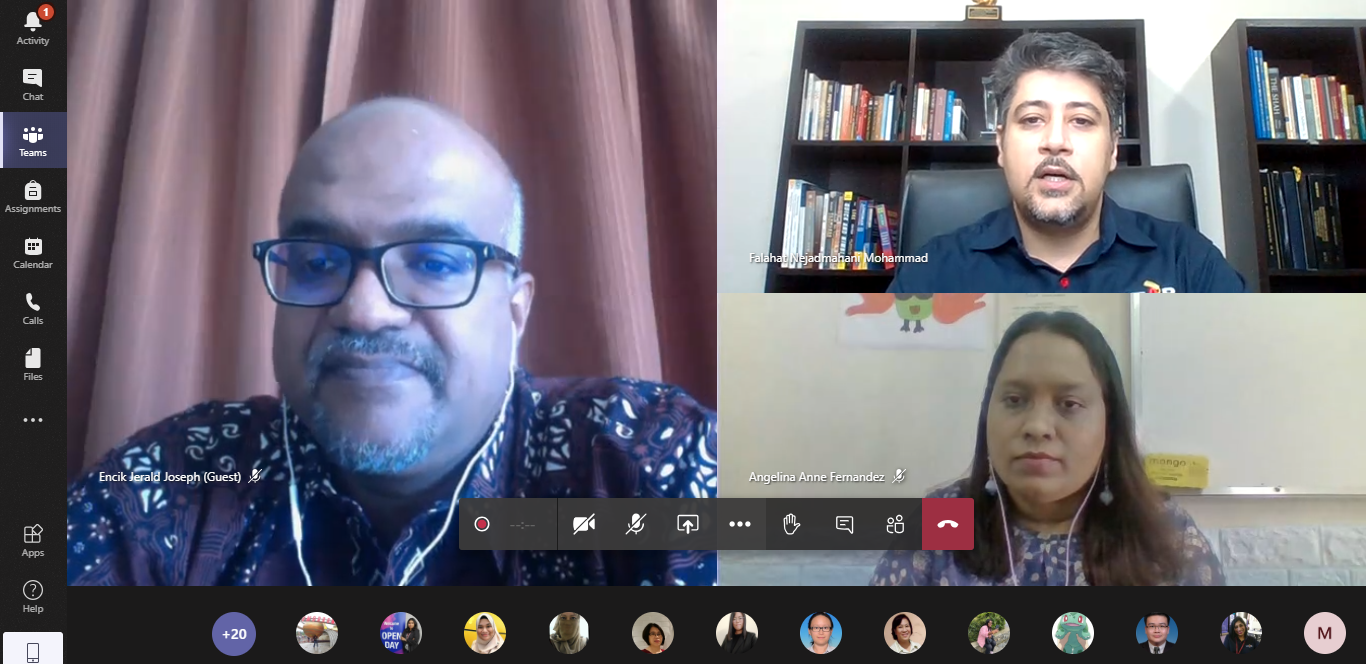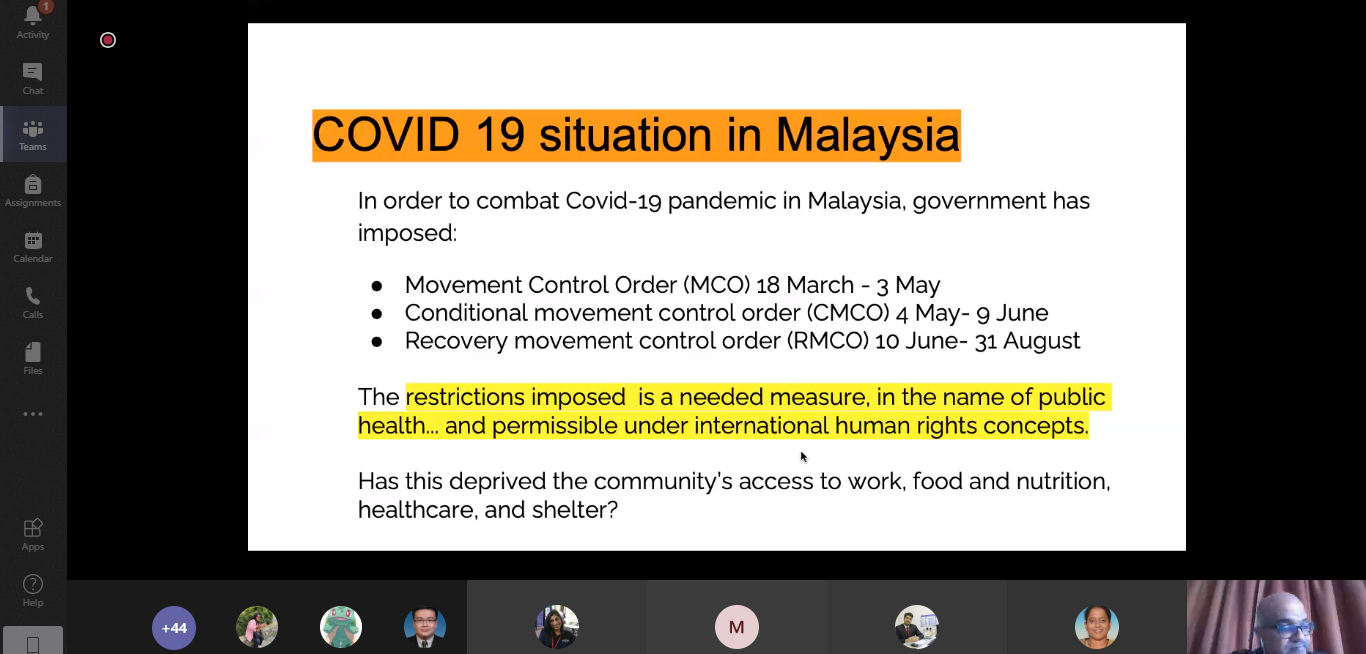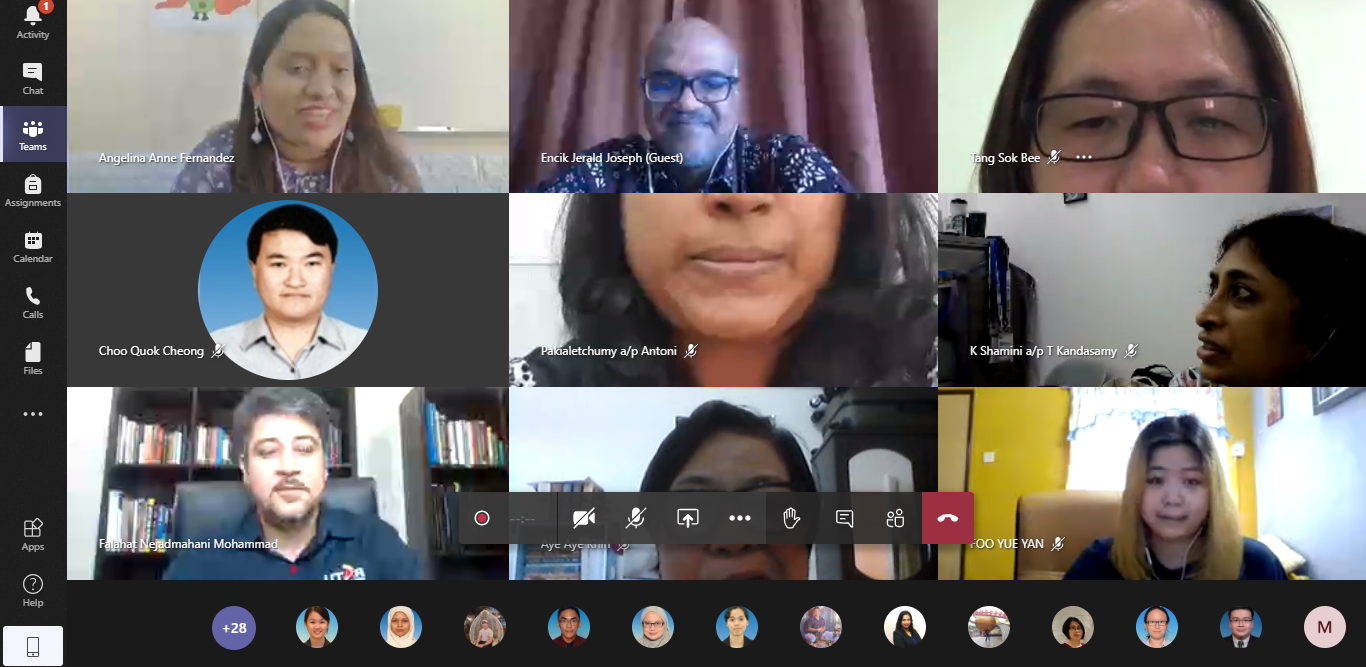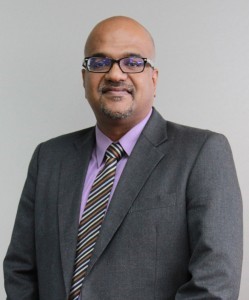

Jerald (left),
Falahat (top-right) and Angelina (bottom-right)
The Centre for Sustainable
Development and Corporate Social Responsibility in Business (CSDCSR) in
collaboration with the Faculty of Accountancy and Management (FAM) organised
a webinar titled “The Impact of COVID-19 on Human Rights” on 21 July 2020
via Microsoft Teams.
The speaker at the webinar was
Jerald Joseph, who is presently the human rights commissioner of Malaysian
Human Rights Commission (SUHAKAM) and a board member-cum-advisor of Pusat
Komunikasi Masyarakat Sdn Bhd Anti-Racism and Non-Discrimination Programme.
The webinar was moderated by CSDCSR Chairperson Dr Mohammad Falahat
Nejadmahani and FAM lecturer Angelina Anne Fernandez. The talk aimed to
highlight how the human rights of different groups in Malaysia have been
affected, as a result of Covid-19.
Angelina began the webinar by
introducing Jerald to the participants, and from there, he took the floor by
addressing the current Covid-19 situation in Malaysia. He explained that the
Movement Control Order (MCO) was completely necessary to protect the
public’s health and that restrictions were allowed to be implemented in
order to contain the virus. However, he noted that despite this, the
restrictions have severely impacted certain groups of people to the extent
that it violated their human rights. Jerald went on to identify these groups
and described how they were affected by the MCO and Covid-19. He spoke about
students and vulnerable communities such as refugees, foreigners, migrant
workers, stateless people, women & children, indigenous people, asylum
seekers and the urban poor.

Jerald presenting
his slides
“During the MCO, students had to
switch to online learning. However, one has to ask, do all students have the
devices for online learning, and if they do, can the devices support
e-learning? One also needs to question how far has e-learning gone, in terms
of whether students in rural areas have access to it. Not just that,
students also need to take concern about their Wi-Fi speed, whether or not
it supports e-learning, as there are those who may not have a stable
Internet connection. All in all, though there have been many students who
have had access to online learning, there are quite a number that do not,”
said Jerald, as he explained how Covid-19 had restricted some student’s
human rights to education.
Lastly, Jerald touched on how Covid-19 has affected Malaysian’s freedom of speech and information, civil rights, parliament sessions, workers’ rights, and people’s right to healthcare. He said, “In this period, many people are facing mental health problems due to poor financial situations. Thus, they should be given access to talk their problems to someone, since mental health is extremely important especially in such a time. Moreover, many marginalised communities are at risk of obtaining the virus, since they are not supplied with facemasks, gloves and hand sanitizers. The LGBT community also faces discrimination in accessing healthcare and refugees arriving in Malaysia could also contract and spread the virus if not given proper screening.”
The talk ended with a brief Q&A and group photo sessions.


![]()
![]()
Wholly owned by UTAR Education Foundation Co. No. 578227-M LEGAL STATEMENT TERM OF USAGE PRIVACY NOTICE